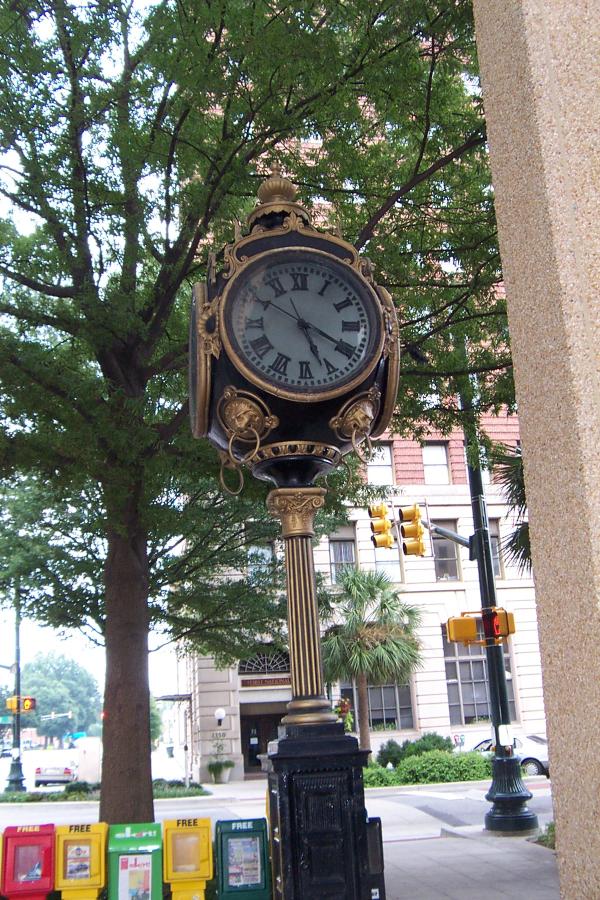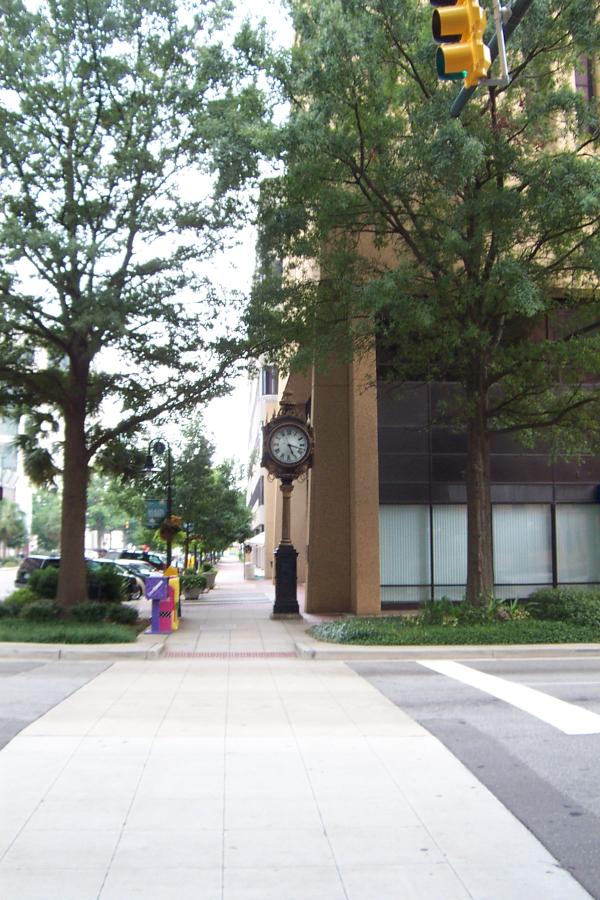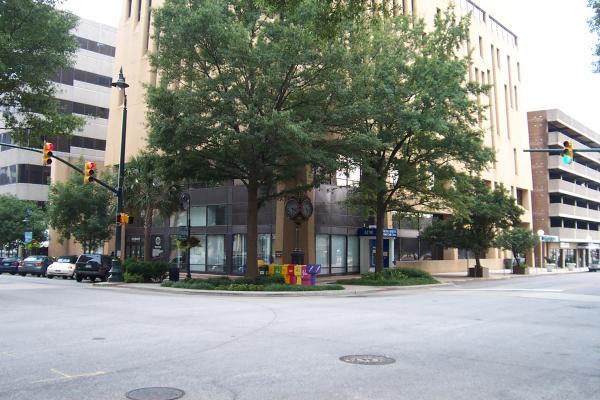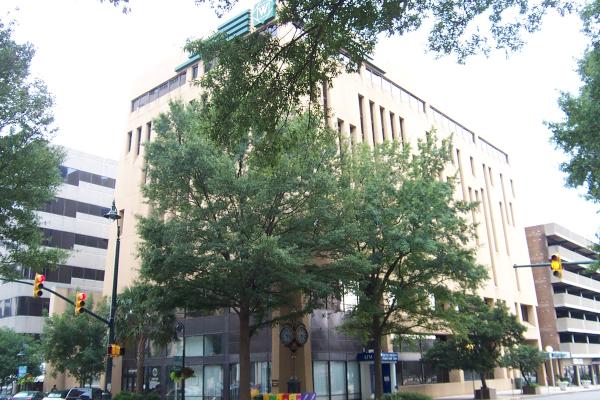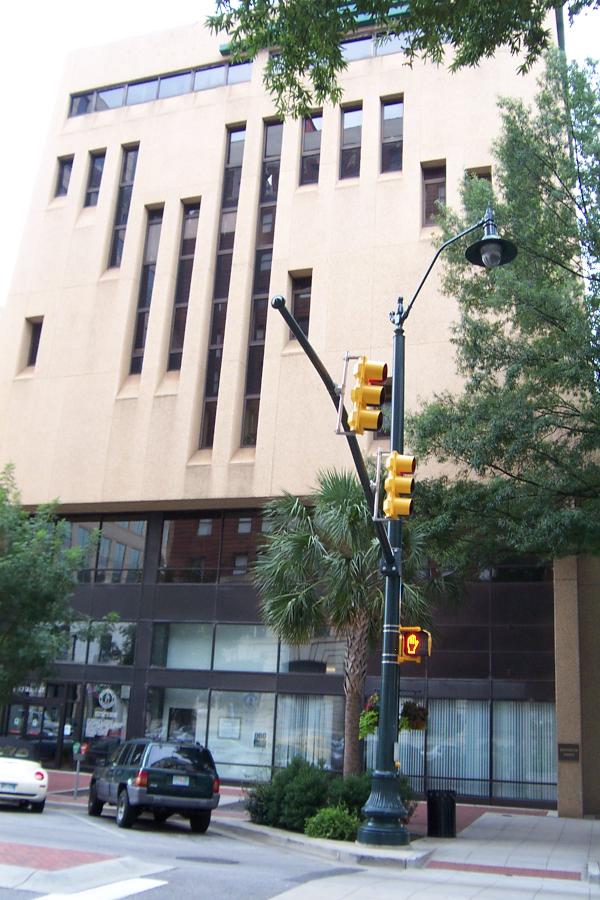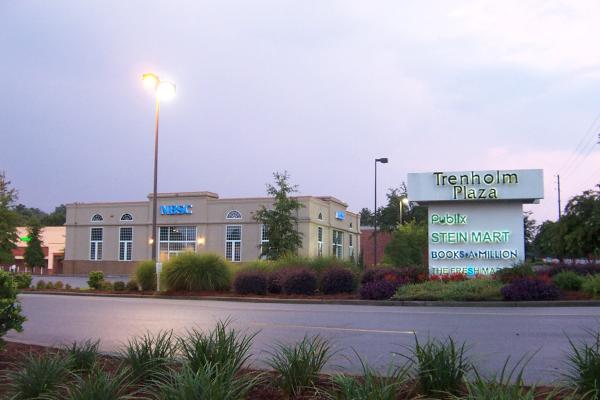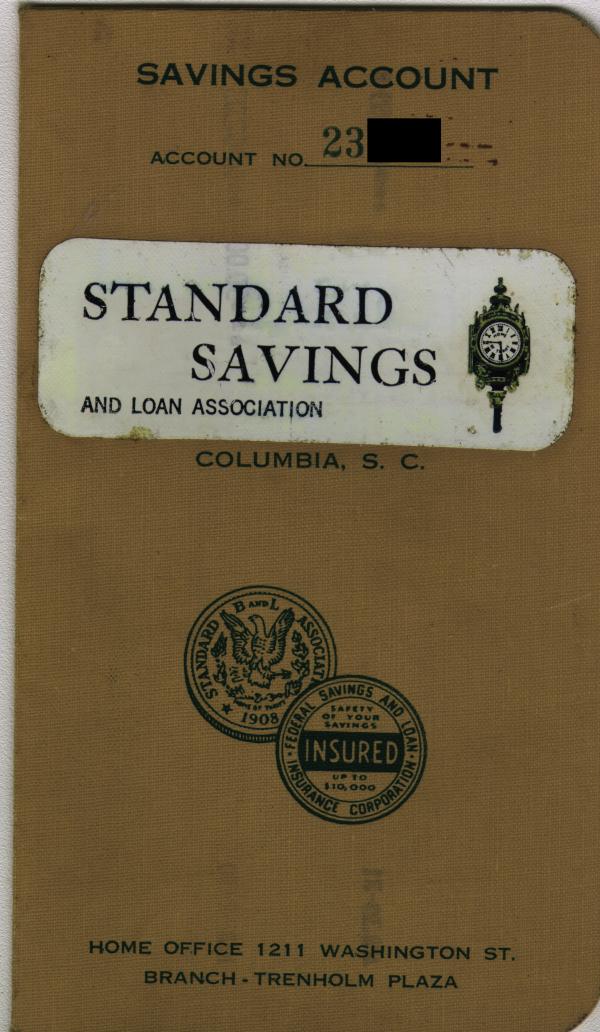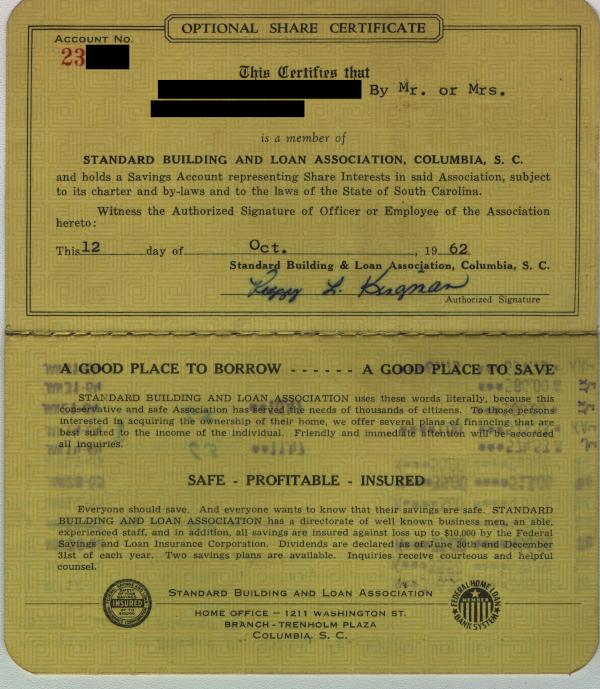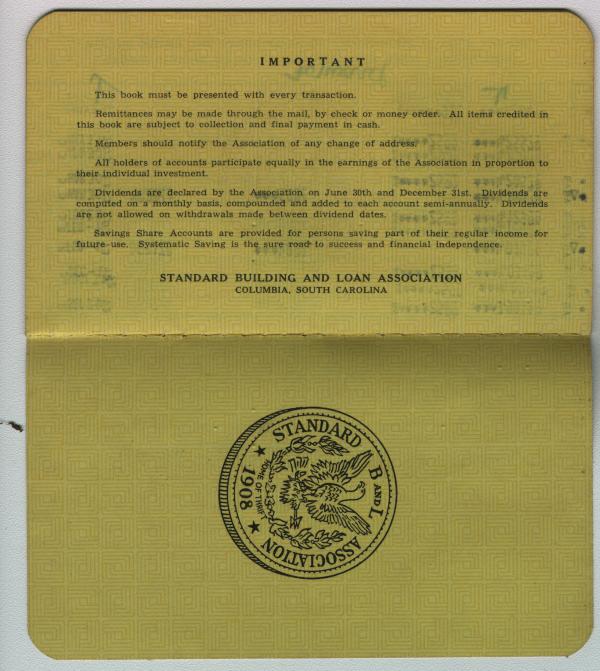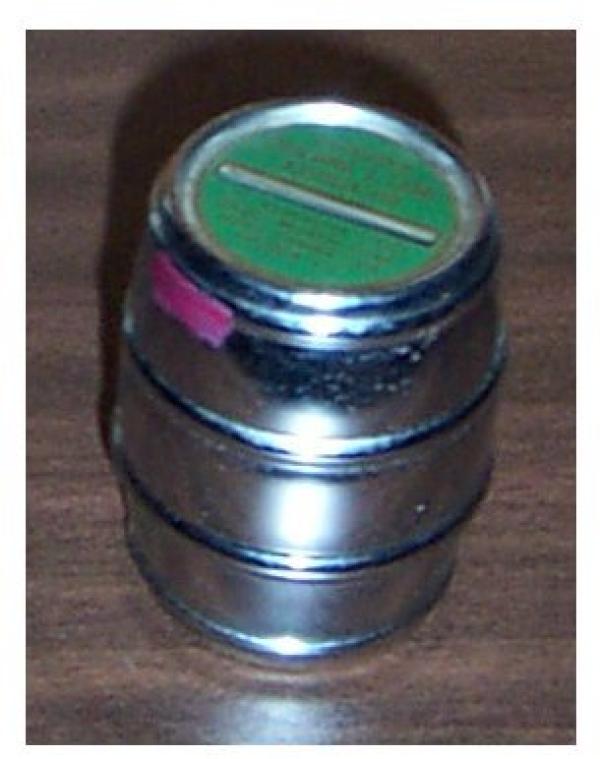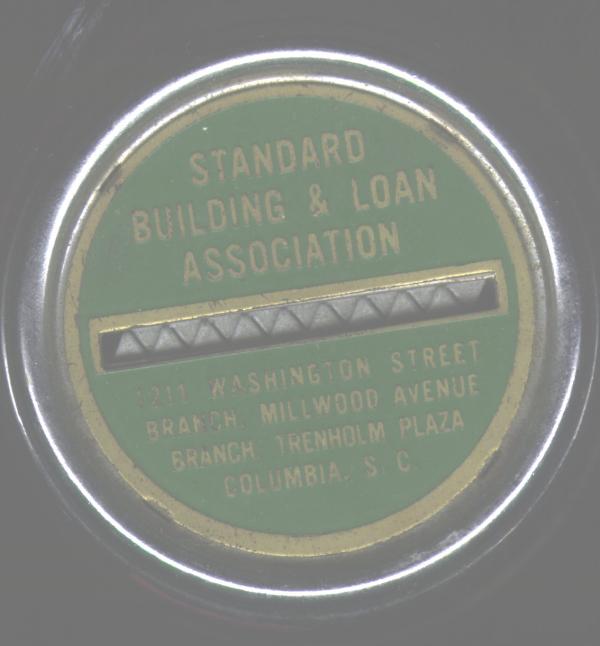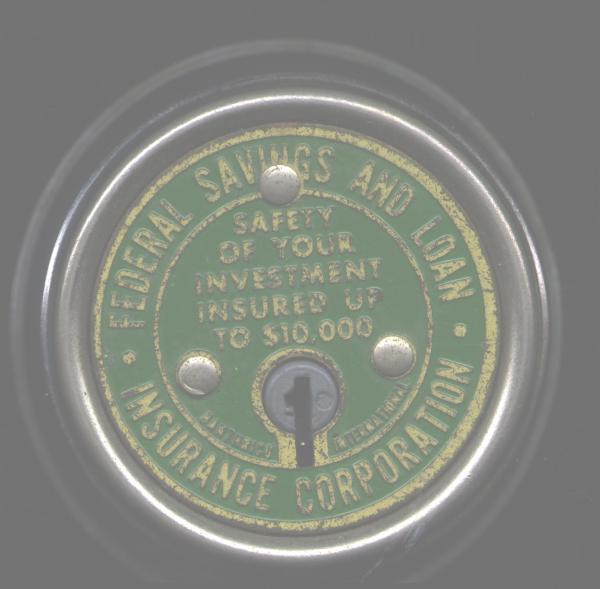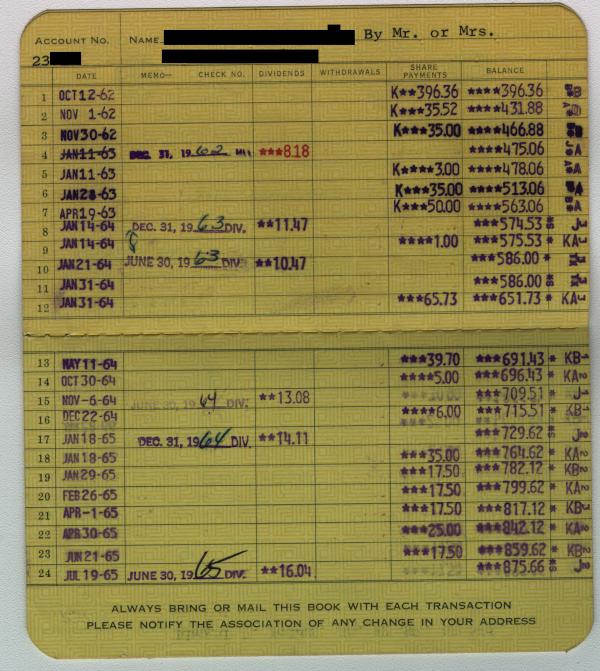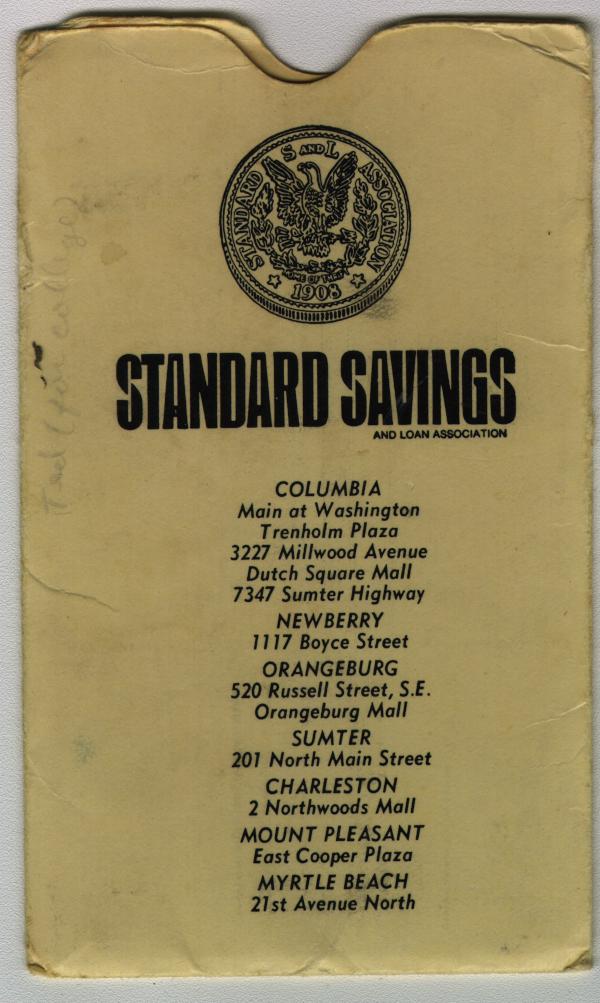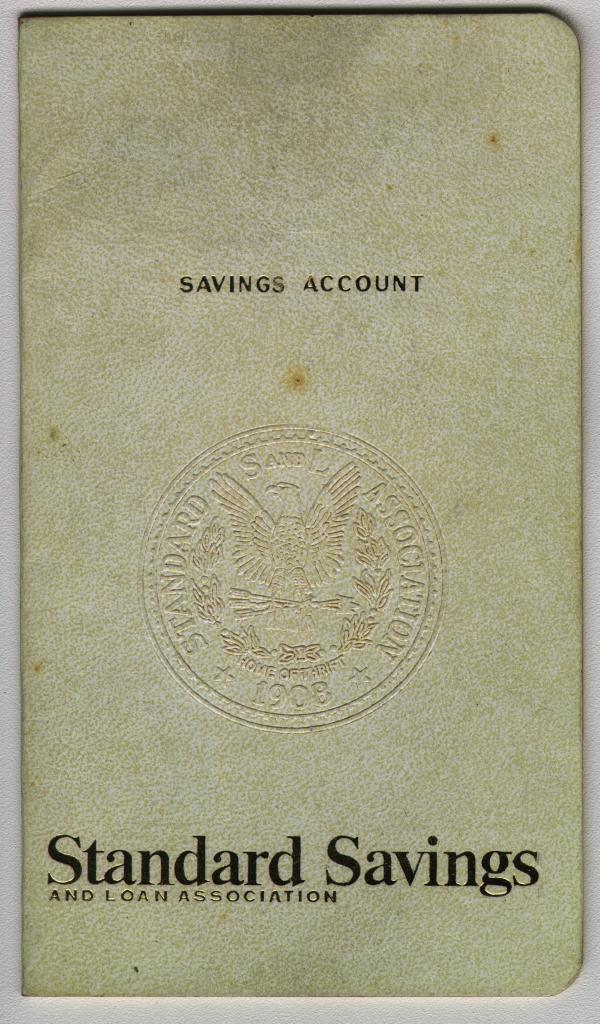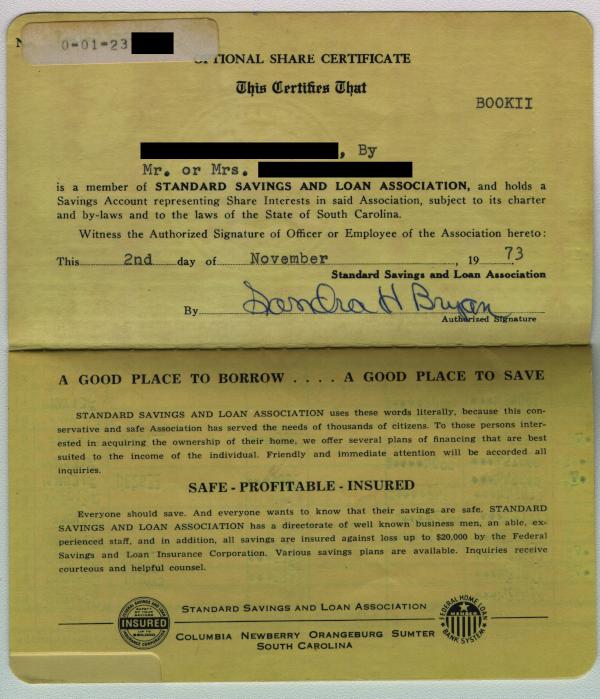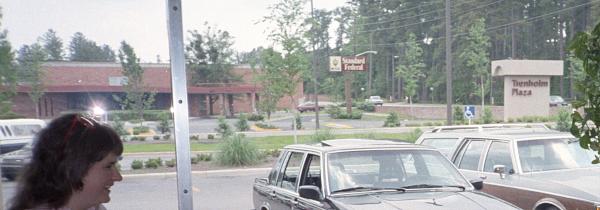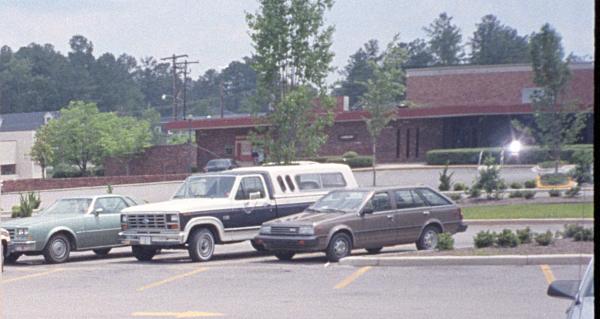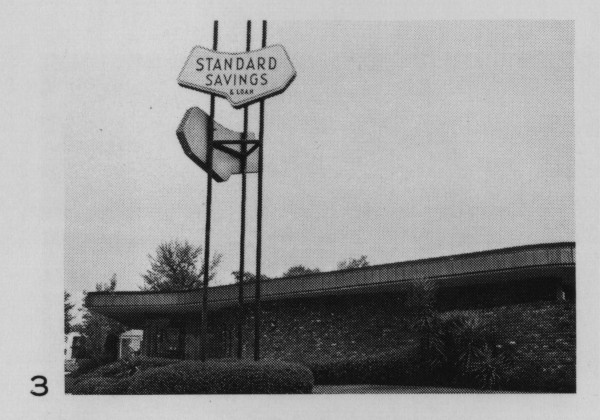Archive for the ‘Savings and Loan’ tag
Standard (Federal) Savings & Loan, Washington at Main (etc): 2 Aug 1991 8 comments
Does the phone number 252-6341 mean anything to you?
If you were here when the whole state's area code was 803, it probably does. Certainly there were many times I dialed it to set my wind-up watch to the dulcet tones of Standard Federal Savings & Loan's time of day service. That was a time when you couldn't turn to CNN and get the time off the bottom-scroll, or get it to within a second over the Internet. Around here, it was pretty much wait for the NBC news-tone at the top of the hour on WIS or call Standard.
I don't know much about the early history of Standard. Apparently it was founded in the aftermath of the Panic of 1907 and weathered WW-I, The Great Depression, WW-II and the 70s. Up through the 50s and probably into the early 60s, it was known as Standard Building & Loan. You can see from my first passbook here that in October of 1962, they had just put a paste-on label reading Standard Savings and Loan Association over whatever had been printed there before. My guess is that they had just switched from Building & Loan given that the inside of the passbook and the coin-banks their kid members got still bore the B&L verbiage:
The passbook cover notes the association's two locations, Washington Street & Trenholm Plaza. The Trenholm location had to be pretty new at the time, given that the area was a golf course into the mid 50s, at least.
In that era, the way savings & loans worked was that you would bring your passbook with you to the bank (OK, technically it wasn't a bank..) whenever you made a transaction, and your passbook would be run into a printing machine (similar to the way checks are still sometimes handled at supermarkets) which would print the day's transactions on seperate lines. (I'm not sure how long it had been since the teller's actually wrote in the passbook, but there still seemed to be a lot of hand-inking involved.) If you didn't have any actual transaction, the bank could still compute your interest (dividends) and enter that for you.
On 12 October 1962, I had $396.36 in my passbook -- very likely the first money I had ever had in my own name, though as I was probably more concerned with learning to walk, I doubt I really thought on it much. I did enjoy later visits as the Trenholm branch had a magical coin machine into which the teller would dump all your coins and it would sort them out and give you a total after much pinging and whirring.
By the time 1973 rolled around and I got my second passbook, you could see that the intervening decade had been good to Standard:
With five locations in Columbia and new branches in Newberry, Orangeburg, Sumter, Mount Pleasant, Charleston and Myrtle Beach, they were obviously an institution on the move.
This was even reflected in the passbook itself, which had moved from being strictly utilitarian to a design with some panache, embossing and even gold-leaf for the text.
You could see the effects of inflation too in that the FSLIC guarantee had been raised from $10,000 per account to $20,000:
At some point in the 1980s, Standard started offering checking accounts as well as passbook accounts, and that's were I got my first checks. They were also fairly early into the ATM market, and though they never had many, the Trenholm location was convienient while I was living in town. (It was a walk-up, and I can distinctly remember thinking, I hope I'm never so lazy that I need to use the ATM without getting out of my car).
In 1985, I took my first real job and moved to Fayetteville NC. I kept my Standard accounts, but as there were no branches up there, mostly dealt with the (now defunct or subsumed) Southern National Bank. While I was living out of town, the S&L crisis of the 80s struck.
I know it's a complex issue, but I think it can be boiled down to the following: Gradually the state and federal governments took the position that George Bailey could go head to head with Mr. Potter -- and kindly, befuddled Uncle Billy was in charge of the new direction.
Standard was far from the only solid-seeming institution to dig its own grave at the time, but it was still a shock to me. I'm sure the taxpayers, en-masse, took it in the shorts as usual, but the government handled it pretty well from a member perspective. There was no panic, just an orderly takeover of the bank. It went so smoothly in fact, that my father decided he wasn't going to move his money and would just keep it in whatever institution ended up with the assets. At this remove, I can't remember what bank that was. It may have been NBSC. They certainly have the location at Trenholm Plaza which used to be occupied by the Standard Branch (which was a much smaller building, and was torn down when the current NBSC was built).
The downtown building is still there (it was obviously remodeled or replaced after 1908 if that was the original location), with its distinctive landmark clock beside it. My memory is that when Standard was at its peak, the building had one wall which was a waterfall -- that now seems to be gone. I have no idea what happened to the other branches either in or out of town.
The 2 August 1991 date for the closing comes from an online lawsuit which references the RTC takeover.
And that little coin-bank? It still has some change in it.
The Time At The Tone Will Be: Too Late
UPDATE 23 March 2010 -- Here are two pictures of the old Trenholm Plaza branch. They were taken inside another Trenholm Plaza store where Standard just happened to be in the background through the window, so the quality is not high:
UPDATE 21 June 2011 -- Here is an older picture of the Trenholm Plaza branch from a Chamber of Commerce promotional book:
